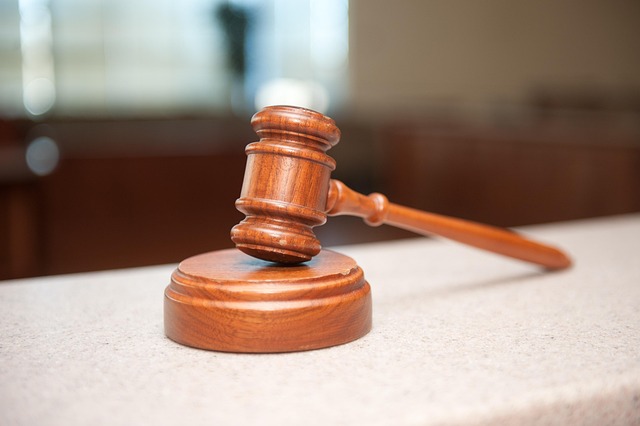False advertising in healthcare has severe repercussions. To take legal action, follow these steps: gather evidence (documents, testimonials), consult a specialized attorney, investigate marketing practices, and understand white-collar crime laws. For patient representation, balance ethical advocacy with case building, navigating regulations and confidentiality. A strong law firm specializing in healthcare and false advertising will protect patients and have a proven track record for successful outcomes.
In the intricate landscape of healthcare, understanding legal intricacies is paramount. This article guides you through the critical aspects of healthcare law, focusing on false advertising claims. From unraveling the complexities of steps to sue for false advertising to navigating legal requirements and building compelling cases, it equips both professionals and patients. Whether you’re considering legal action or simply seeking insight, these insights into navigating legal proceedings and representing patients are invaluable in today’s healthcare environment.
- Understanding False Advertising Claims in Healthcare
- Navigating Legal Requirements for Suing Healthcare Providers
- Steps to Take When Building a Case for False Advertising
- Effective Strategies for Representing Patients in Legal Proceedings
Understanding False Advertising Claims in Healthcare
False advertising claims in healthcare can arise when medical professionals or facilities make misleading or unsubstantiated representations about their services, treatments, or qualifications. These claims not only mislead patients but also pose significant risks to public health and safety. If you suspect false advertising in healthcare, understanding the steps to sue for false advertising is crucial.
The process begins by gathering evidence that supports your claim, such as documents, testimonials, and expert opinions. Next, consult with a healthcare attorney who specializes in these matters to navigate all stages of the investigative and enforcement process. The goal is to achieve extraordinary results, which may include a complete dismissal of all charges against you or significant financial compensation for any damages incurred.
Navigating Legal Requirements for Suing Healthcare Providers
Navigating the legal landscape when suing healthcare providers can be complex, especially with the intricate web of regulations and ethical considerations. When it comes to claims involving false advertising, businesses must follow precise steps to ensure a solid case. The process begins by thoroughly investigating any instances of misleading or deceptive marketing practices by the healthcare provider. This includes examining promotional materials, advertisements, and communications that may have misled patients about services or treatments.
Gathering evidence is a crucial step in building a compelling case. This involves collecting documentation such as contracts, billing records, and patient testimonials to demonstrate any false representations or omissions. Understanding the specific legal requirements related to white-collar and economic crimes is essential, as these cases often require intricate financial investigations. By employing strategic legal tactics and presenting a well-structured argument, businesses can aim for winning challenging defense verdicts in their respective business domains.
Steps to Take When Building a Case for False Advertising
When building a case for false advertising, the first step is to gather evidence demonstrating that there was indeed false or misleading information used in marketing or promotional activities. This includes documents, communications, and any materials that support your claim. An unprecedented track record of successful campaigns can serve as compelling evidence in such cases.
Next, you’ll need to establish a direct connection between the false advertising and the harm suffered by your business. This involves showing how the misleading representations affected your market share, sales, or reputation. It’s crucial to differentiate this from general business fluctuations or external factors to strengthen your case. Consider enlisting the help of experts in white collar defense or general criminal defense to navigate the legal complexities and ensure a robust argument is presented.
Effective Strategies for Representing Patients in Legal Proceedings
Representing patients in legal proceedings requires a strategic approach that balances ethical considerations with effective advocacy. One key strategy is to build a robust case by meticulously gathering and organizing evidence, including medical records, expert opinions, and any relevant communication. This process involves navigating complex regulatory frameworks and ensuring compliance with patient confidentiality laws. By doing so, law firms can protect their clients’ rights and interests while navigating the intricacies of healthcare litigation.
Moreover, successful representation often hinges on clear communication with patients and a deep understanding of their unique circumstances. Lawyers should foster trust by explaining legal procedures in plain language and addressing patients’ concerns. This patient-centered approach extends to strategic decision-making, such as deciding whether to pursue settlement negotiations or proceed with jury trials. An unprecedented track record in handling such cases, combined with an ability to navigate the complexities of healthcare law, can significantly enhance a firm’s reputation within the philanthropic and political communities. Additionally, when addressing issues like false advertising, taking steps to sue for false advertising can hold perpetrators accountable and protect patients from deceptive practices.
In navigating the complex landscape of healthcare law, understanding false advertising claims and effective strategies for representation are paramount. By delving into the legal requirements, building a robust case with solid steps to sue for false advertising, and fostering patient advocacy, healthcare law firms can ensure they provide comprehensive support. These tactics not only protect patients’ rights but also revolutionize how legal proceedings are handled in this crucial realm. Remember that, in today’s digital era, promptly addressing false advertising issues can create a healthier, more transparent environment for all stakeholders.






